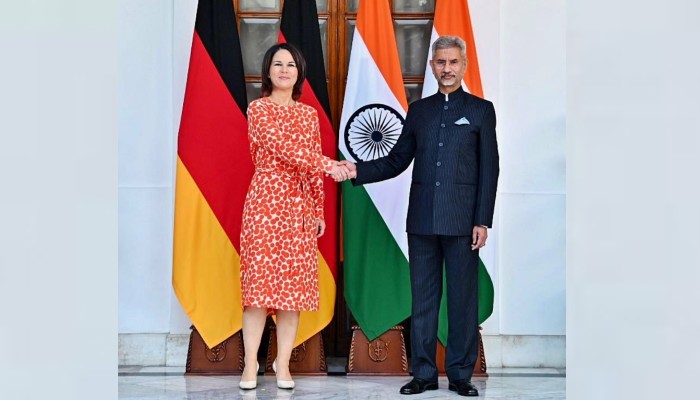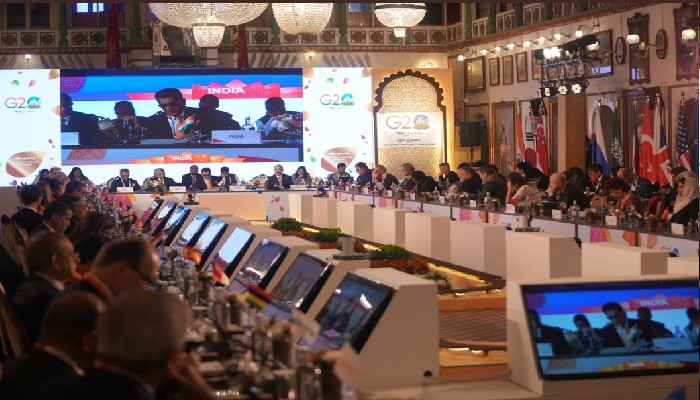The German delegation was briefed about the conduct of elections in India
A team from Germany led by Foreign Minister Annalena Baerbock visited the Election Commission of India on Tuesday to understand the poll panel's functioning.
The German team met with Chief Election Commissioner Rajiv Kumar and Election Commissioners Anup Chandra Pandey and Arun Goel.
During the meeting, four members of the German parliament—Agnieszka Brugger, Thomas Erndl, Ulrich Lechte, Andreas Larem, Philipp Ackermann, the German ambassador to India, and several officials from her Foreign Office—also accompanied the Foreign Minister.
CEC Rajiv Kumar noted that India's historical framework and traditions are firmly ingrained with the concept of democracy.
He gave the German delegation an overview of the size of the Indian elections. The CEC explained the intricate process that the ECI runs for over 950 million voters across 1.1 million polling places, co-opting 11 million poll workers to ensure robust electoral processes for conducting free, fair, inclusive, accessible, and participatory elections.
Kumar stressed that ECI makes sure that political parties are involved at every level. He claimed that in addition to logistical difficulties, the disruptive effects of false social media narratives that might damage free and fair elections are quickly becoming a problem shared by most election management bodies.
The German Foreign Minister complimented the extensive election management work done by ECI in India, considering the obstacles posed by the country's diverse terrain, culture, and voters.
She also received a briefing on ECI’s extensive use of technology in the conduct of elections, which may be divided into three categories: voter involvement, political parties and candidates, and logistics of the election apparatus. She personally used an EVM to vote during a demonstration of how the EVM-VVPAT worked for the delegation.
She and the MPs paid close attention to the robust security features of freestanding EVMs as well as the stringent administrative procedures for handling, moving, storing, operating, and allowing political parties to participate at each step of the election process using EVMs.
Senior representatives from the German Foreign Office, the German Embassy in New Delhi, and the Indian Election Commission were also present.
 Contact Us
Contact Us  Subscribe Us
Subscribe Us









 Contact Us
Contact Us
 Subscribe
Subscribe
 News Letter
News Letter

